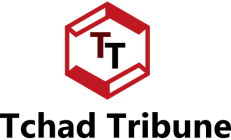Dr. Barbara Ayesha Anawana Karbo, Accident and Emergency Specialist at International Maritime Hospital (IMaH), has emphasised the application of proper Basic Life Support metthods to save victims rescued from drowning.
She said that Basic Life Support (BLS) was a level of medical care used in life-threatening emergencies until the victim could be treated properly at a hospital.
Dr Karbo gave the advice during the weekly ‘Your Health! Our Collective Responsibility,’ a Ghana News Agency Tema Regional Office initiative aimed at promoting communication on health-related topics and providing a platform for the dissemination of health information to influence personal health choices by improving health literacy.
The Ghana News Agency Tema Regional Office established the ‘Your Health! Our Collective Responsibility’ public health advocacy platform to examine the aspects of four health communication approaches: informing, instructive, persuasive, and urging.
Speaking on the topic of ‘First Aid at Home and Basic Life Support,’ Dr. Karbo mentioned that when the person was taken out of the water, whether conscious or not, BLS was the right step to save the victim from the pain.
She emphasised the importance of asking for permission from the victims before proceeding to offer support as the procedure required touching the body of the person especially sometines around the chest, adding that if the person was not able to respond, they could be moved for some time to enable them to talk.
Dr. Karbo said the victim must be turned to the left side with the knee burned and drawn back with the right leg lying straight to enable the stomach contents to come out.
She, however, said if the person was totally unconscious, you checked for breath, chest rise, and then the pulse to immediately begin chest compressions, adding that the rising of the chest was an indication that the heart was working.
Dr. Karbo added that putting pressure on the chest, brought water in the lungs of the person out and enabled the heart to start.
She added that in a situation when the person was a close family member, one could opt for two breaths, which were mouth-to-mouth and admonished that the cycle of compression and breath continued until the person started breathing or emergency help arrived.
The Specialist said the procedure could also help people choking, suffering from cardiac arrest, and a lot more, which could make the difference between life and death for some people.
Dr. Karbo cautioned against trying to save a drowning person without any proper swimming lessons and urged that an alarm be raised for the life guards to bring the victim out.
Mr. Francis Ameyibor, Regional Manager of Ghana News Agency Tema urged both traditional and social media managers to spend time engaging health professionals to educate the public, stating that ‘the education we offer today through our media platform may save a life tomorrow.’
Source: Ghana News Agency
